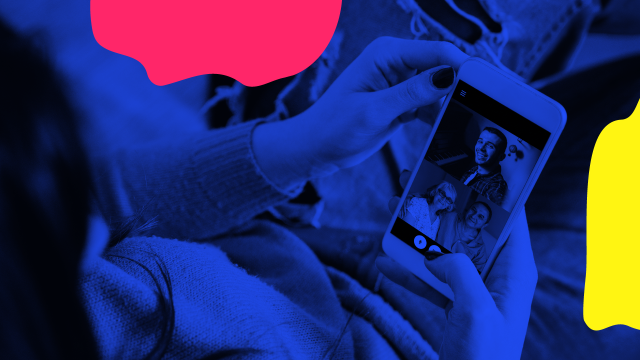As a country in lockdown over coronavirus, Australia has been asked to band together for the greater good of the nation. Between national health concerns, the high rate of job losses and the constant stream of news about the virus, it can be easy to forget the impact it has on individuals. So we checked in with 10,000 of you to see how your lives and mentality have changed during COVID-19. Here are some of the things that stood out.
Unemployment during COVID-19
Our survey revealed that 17 per cent of Gizmodo readers are now unemployed as a direct result of the COVID-19 pandemic. Across the entire Pedestrian Group, which includes Kotaku, Lifehacker, Business Insider, Pedestrian.TV and PopSugar, this stat sits at 19 per cent, with women being 25 per cent more likely to have lost their jobs.
In addition to the regular news around job losses over the past few weeks, we also saw how it impacted government infrastructure. The first day that people could apply for JobSeeker payments, the NSW government website went down, as did MyGov – which was incorrectly blamed on a DDoS attack.
While this can give you some idea of just how many people were impacted by job losses even in those first few days, seeing percentage figures around our own community of readers is a stark reminder of the impact on people as individuals, not just the collective.
We also know that job loss is something a lot of you worry about. We asked you what your top five personal concerns were around COVID-19 and the second biggest fear is financial and job security, with 29.78 per cent of readers expressing their dismay.
If you have found yourself in this position, we have an explainer on how the JobSeeker and JobKeeper payments work. We also have some tips on changing careers during COVID-19 as well as a round up of great online learning platforms.
[referenced url=”https://gizmodo.com.au/2020/03/sick-days-stories-from-people-keeping-the-world-running/” thumb=”https://i.kinja-img.com/gawker-media/image/upload/t_ku-large/eqbricapqkizzvpfcexr.png” title=”Sick Days: Stories From People Keeping The World Running” excerpt=”This is the first edition of Sick Days, a new series documenting how people are working during the coronavirus pandemic. We’re running stories submitted by readers who want to tell us how their jobs are changing as the virus spreads throughout the world, and how they plan to get through it.”]
Mental health during COVID-19
Coronavirus and lockdown is also having a significant impact on the mental health of Australians. Fear around mental health is the third largest personal concern in our survey results, with 17.5 per cent of our readers concerned about it.
Fortunately, mental wellbeing is not being ignored during this crisis. As part of original $1.1 billion health funding package released by the government, $74 million is going into mental health services.
This is important, because before the pandemic 1 in 5 Australians experienced some kind of mental health issue. This has more than likely jumped up during the pandemic.
If you feel like your mental health has been impacted by coronavirus, it is a good idea to try and schedule an appointment with your GP if you can, so you can get a referral to a psychiatrist or psychologist. There are also support lines you can lean on during times of crsis:
- Beyond Blue online forums
- Lifeline telephone counselling, 13 11 14 (24 hours)
- Suicide Call Back Service, 1300 659 467 (24 hours)
- Kids Helpline, 1800 55 1800 (24 hours).
- Crisis Assessment And Treatment Team (CATT)
- 000 in an emergency
There are also areas that you can invest in to try and help improve your mental wellbeing during this time such as sleep, nutrition, social connectiveness, exercise, stress management and the avoidance of risky substance use. You can read more about how to invest in these areas here.
[referenced url=”https://gizmodo.com.au/2020/03/how-to-monitor-your-mental-health-during-the-coronavirus-pandemic/” thumb=”https://gizmodo.com.au/wp-content/uploads/2020/03/mental-health-coronavirus-410×231.png” title=”How To Monitor Your Mental Health During The Coronavirus Pandemic” excerpt=”Medicare-subsidised psychology and psychiatry sessions, as well as GP visits, can now take place via phone and video calls ” if clinicians agree not to charge patients out-of-pocket costs for the consult.”]
Caring About Others During COVID-19
One of the most interesting survey results found that readers across all of our publications placed more importance on the health of their loved ones than themselves. The number one personal concern for readers was a family member contracting COVID-19, at 30.21 per cent. Comparatively, only 4.24 per cent of readers feared getting it themselves.
For anyone who is concerned about themselves or loved ones contracting COVID-19, it’s worth remembering that different people present different symptoms (some none at all) and that there is a long incubation period. You can learn more about the infection period here.
These results maybe be due to the fact that 2 per cent of readers have had a suspected case of COVID-19, with only 0.12 per cent actually receiving a positive result. Furthermore, only 17 per cent of readers know someone who has contracted the virus.
But I like to be an optimist. While the numbers don’t lie here, I am also taking this as a sign that our readers are for the most part a good bunch of eggs who place the health and safety of their loved ones above their own. I can’t back that up with data, but the thought makes me happy.
Stay safe, Giz readers. We love you.
Source: Pedestrian Group reader survey, April 2020, 18-34 (n=5,611)
[referenced url=”https://gizmodo.com.au/2020/04/how-long-are-you-infectious-when-you-have-coronavirus/” thumb=”https://gizmodo.com.au/wp-content/uploads/2020/04/coronavirus-contagious-410×231.png” title=”How Long Are You Infectious When You Have Coronavirus?” excerpt=”As the coronavirus pandemic stretches on, a small proportion of Australians infected have now died, while most have either recovered, or are likely to recover over the next few weeks.”]
